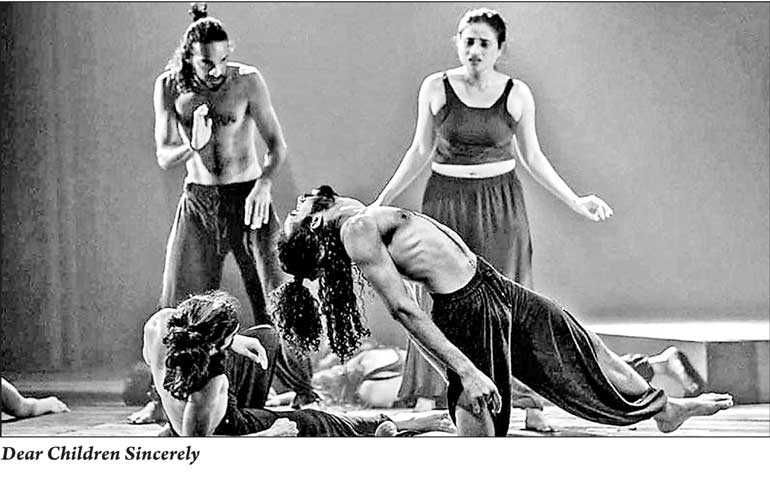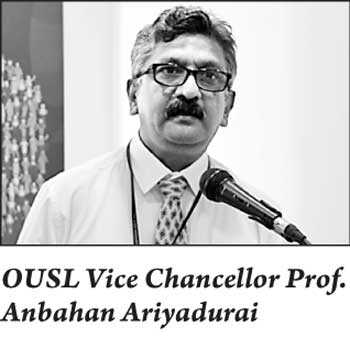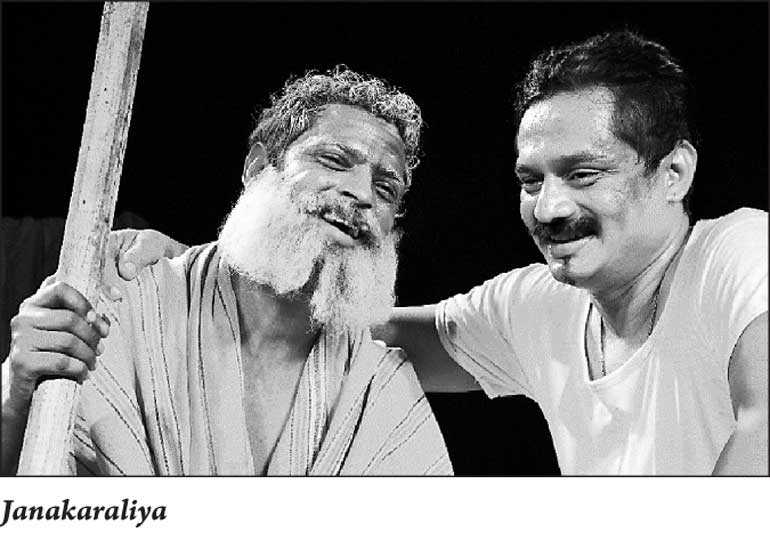Tuesday Feb 17, 2026
Tuesday Feb 17, 2026
Saturday, 13 July 2019 00:02 - - {{hitsCtrl.values.hits}}

 Sri Lanka currently faces multiple challenges in relation to rebuilding social trust among communities. In the aftermath of the deadly Easter Sunday bombings Sri Lankan society has experienced a renewed cycle of ethno-religious enmity, mistrust and violence. Unfortunately, this has become an all too familiar occurrence in post-independence Sri Lanka.
Sri Lanka currently faces multiple challenges in relation to rebuilding social trust among communities. In the aftermath of the deadly Easter Sunday bombings Sri Lankan society has experienced a renewed cycle of ethno-religious enmity, mistrust and violence. Unfortunately, this has become an all too familiar occurrence in post-independence Sri Lanka.
In a context where mainstream education, media and social discourse in general is heavily polarised, options for building trust among communities have become increasingly limited. A unique event held at the Postgraduate Institute of English, the Open University of Sri Lanka explored precisely these challenges.
Over two days from 4-5 July, participants ranging from dramatists, film makers, script-writers, actors, state officials, policy makers, activists and representatives of funding agencies debated diverse aspects of how the arts, and theatre in particular, could potentially be mobilised for progressive social change.
The two-day seminar entitled ‘The Theatre of Reconciliation: Potentials, Tensions and Practices’ was inaugurated with the Vice Chairman of the University Grants Commission, Prof. P.S.M. Guneratne as Chief Guest and the Vice Chancellor of the Open University of Sri Lanka (OUSL), Prof Anbahan Ariyadurai as the Guest of Honour, Gill Caldicott, Country Director, British Council Sri Lanka and Louise Cowcher Director of English and Education, British Council Sri Lanka in addition to the Deans of the six faculties of OUSL and other distinguished guests.
The British Council Sri Lanka provided funding for the event under its ‘Transform’ theme. The seminar was part of a larger one-year Art and Reconciliation research project which was also funded by the Transform theme of the British Council.
Speaking at the seminar the Vice Chancellor of OUSL highlighted the importance of this type of socially engaged initiative in the current context where reconciliation is a critical national need. The Vice Chairman of the UGC pointed out the importance of higher education entities engaging in socially important activities and forming partnerships with international donor agencies such as the British Council. Louise Cowcher, Director English and Education of the British Council, expressed her thanks to the PGIE for conducting the research project and spoke of the British Council’s commitment to higher education and social progress in Sri Lanka.
The first day of the seminar was devoted to two panels that explored various dimensions of censorship and restrictions imposed on artistic practice and expression. Prominent dramatists, academics and representatives of funding agencies participated in these panels and there was a rich and vibrant discussion on the complexities of both defining and identifying censorship and the multiple sources from which it could emanate – including both State and non-State actors.
The panellists in particular noted an alarming trend where certain social forces are able to utilise state apparatus to silence and intimidate artists and their right to free expression. While censorship of artistic expression is not new in Sri Lankan society the panellists identified the ability of social groups to mobilise State apparatus to censor artists as a new and damaging phenomenon.
Day one ended with the performance of Bhasha Mowli by the Janakaraliya Theatre Group, which was one of the theatre groups studied under the project. This short satirical piece humorously explored the politics of linguistic mistranslation in Sri Lanka where language poses a significant barrier to reconciliation. Bhasha Mowli was particularly effective in exploring the problems that arise when state institutions and officials are unable to function in minority languages.
The second day of the seminar also had two panels. One panel explored the challenges of archiving and documenting a dynamic and ephemeral art form like theatre, where once the live performance is over, little remains of the artistic ‘product’ for posterity. The other panel explored the diverse ways in which theatre can be used in education and the importance of fostering an aesthetic imagination among students.
The seminar ended with a wrap up discussion and a short performance of two segments of ‘Dear Children Sincerely: Seven Decades of Sri Lanka,’ which dramatise critical decades in Sri Lanka’s history based on oral histories gathered by the Stages Theatre Group.
This two-day seminar represented the culmination of a year-long research project which involved two in-depth case studies of the Janakaraliya and Stages Theatre Groups as models of alternative theatre which have engaged with a diverse range of sensitive social issues over a significant period of time.
Both theatre groups have worked towards transcending barriers of language and culture and also experiment with a range of non-traditional theatrical forms that redefine theatre and how audiences relate to theatre. They also represent two theatrical groups where the process of theatre-making itself involves a form of social education for the theatrical practitioners involved in conceptualisation and production.
The research project involved gathering archival material from the two theatre groups, observations of the production process, interviews, focus group discussions, audience surveys and other forms of qualitative data gathering. The project has resulted in a rich and varied repository of data which is currently been analysed for further publication and dissemination to better inform future policy making and research in a range of areas related to theatre, education and reconciliation.
